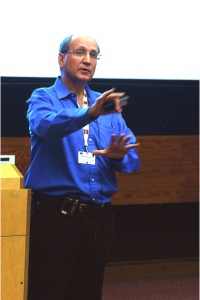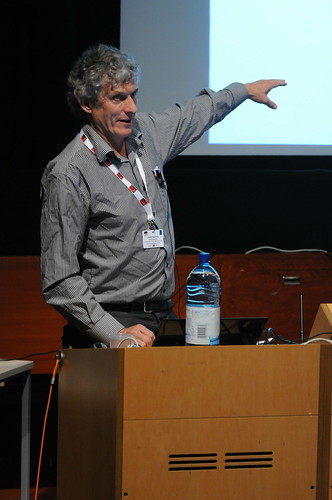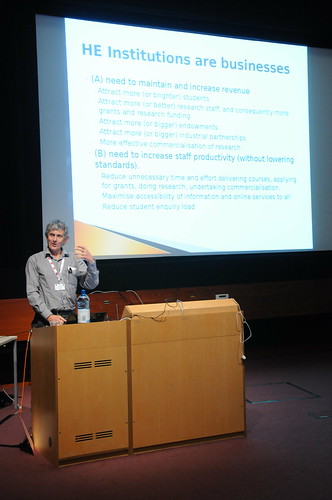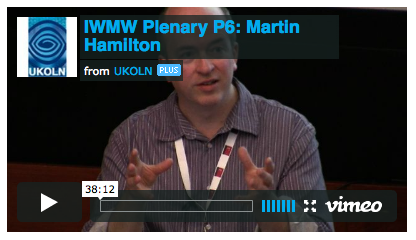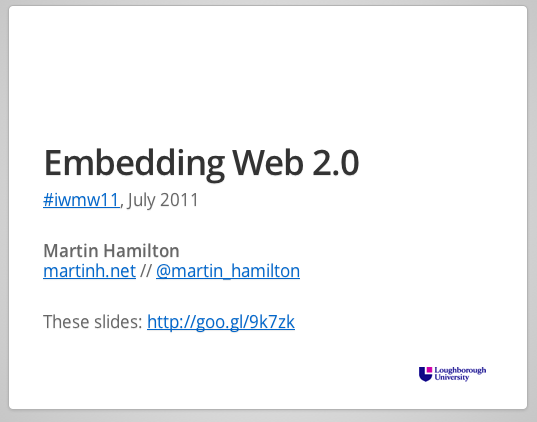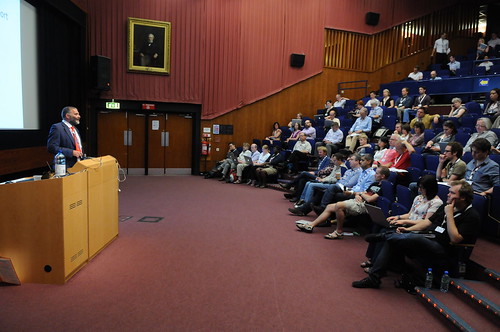This session “ate its own dog food” by amplifying itself using free tools, including a free live video stream using both Livestream and Bambuser, Slideshare, and a Netvibes page.
People gave a variety of reasons for attending this workshop, but the strongest theme was that web teams are increasingly being asked to support marketing departments to help amplify university open days and graduation ceremonies. Distance learning and the amplification of seminars to make them more accessible were also areas of of interest. Most participants were keen to explore the tools and techniques available.
“Amplified events can enhance face-to-face events by exploiting networked technologies to widen participation to remote participants and ‘time-shifting’ events”
Participants discussed their experiences of amplifying events in groups, including positive stories from web managers who had been inspired by the amplification of IWMW in previous years and have since started to amplify graduation ceremonies using similar techniques. One participant noted that this generated some nervousness from their PR team, who were concerned about inappropriate Twitter results appearing on an official university page. However, this was overcome by filtering certain terms from the search display.
Marieke talked us through some of the tools available, including live streaming services, audio interview tools and photo sharing services. She put these into the context of previous IWMW events, emphasising the importance of tagging materials – whatever they are and wherever they are.
Marieke also discussed the role of webinars and distance learning, citing work at the University of Bath where lectures are being streamed into secondary rooms using Panopto as they could no longer fit everyone into the main lecture room. She noted this had some interesting results, with some students actively preferring to attend the secondary lecture. She also talked us through Elluminate and the various tools that can be used to collate materials, such as Lanyrd.
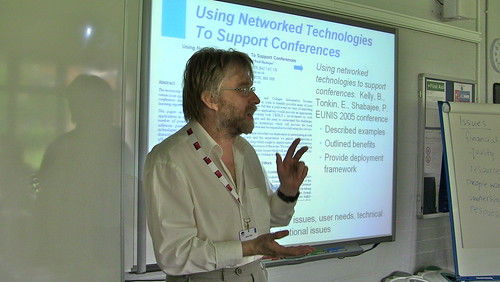
Brian then took over to discuss the economical ways you can amplify your event. This included using Bambuser to stream the session from a mobile device. You can see a recording of this live stream here. He emphasised the need for a clear deployment framework when amplifying an event and a detailed post-event review to help improve the user’s experience at future event. Brian also outlined some of the concerns that surround event amplification, including the risk of things going wrong, managing expectations, ownership and copyright.
He concluded by discussing the toolkit that UKOLN are writing, as part of the JISC Greening ICT project, to help universities offer amplification to reduce the carbon impact of travelling to events. He asked the group for feedback about what they would like to see in this toolkit to help them make practical use of it, once published.

